Zorba the Buddha
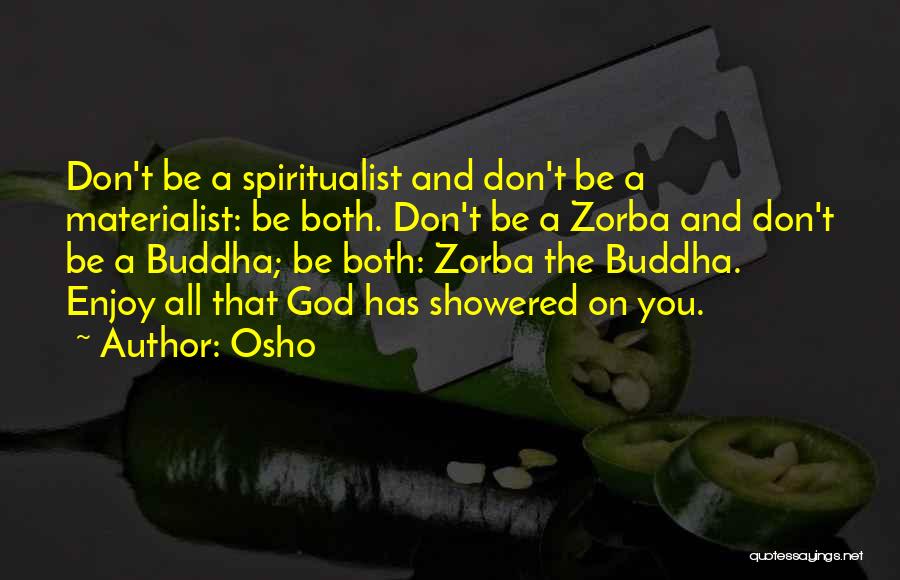

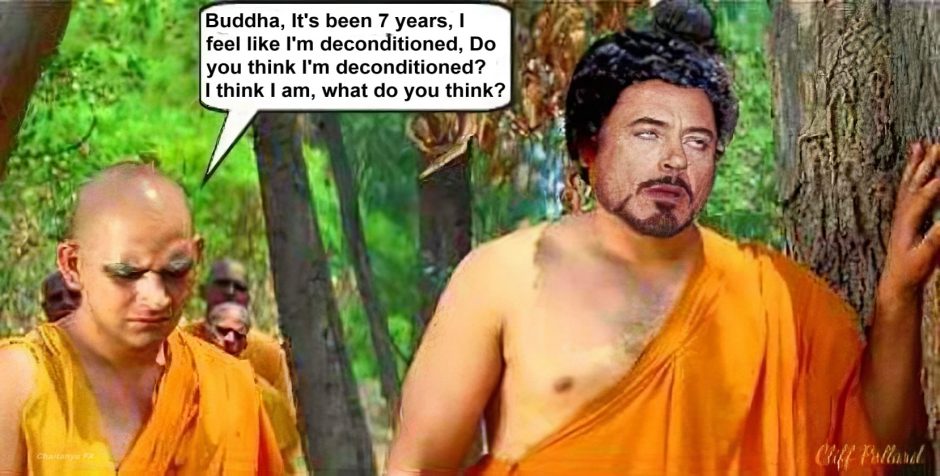
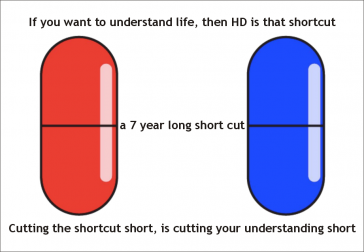
Supposedly the Buddha has said:
“My teaching is a raft whereon men may reach the far shore The sad fact is that so many mistake the raft for the shore”
But what I see often with people dabbling with Human Design and in the HD FaceBook groups is people bitching about that raft, thinking they can take a bus instead, or get a canoe. Get a ride with someone else instead.
And then others ask if there are accommodations on the raft, with sheets and bedding, what time is lunch actually? Wanting the day to day program, stating ahead that they’re not going to do the 2 o-clock meditations ever, ow and probably skip that other class too cause someone else did it and they did not like it.
Then there are those that seek discounts for the crossing without ever knowing the initial price.
Others complain about not being able to swim, or only seek to go when the weather is fine and they have a few free holi-days.
And thus they never reach that far shore, never get to experience what life is going to be like after. Seeing the raft, or teaching as a means to not go, to not ‘get their feet wet’ as a hurdle, when the raft is only just a means to get somewhere else.
It is not about the raft at all. It is not about all these Outer Circumstances.
Read more
“The way of the Buddha is not a religion in the ordinary sense of the term, because it has no belief system, no dogma, no scripture. It does not believe in God, it does not believe in the soul, it does not believe in any paradise. It is a tremendous unbelief-and yet it is a religion. It is unique. Nothing has ever happened like it before in the history of human consciousness, and nothing afterward.
Buddha remains utterly unique, incomparable. He says that God is nothing but a search for security, a search for safety, a search for shelter. You believe in God, not because God is there; you believe in God because you feel helpless without that belief. Even if there is no God, you will invent one. The temptation comes from your weakness. It is a projection.
Humans feel limited, helpless, almost victims of circumstance-not knowing from where they come, not knowing where they are going, not knowing why they are here. If there is no God it is difficult for ordinary people to have any meaning in life. The ordinary mind will go berserk without God. God is a prop-it helps you, it consoles you, it comforts you. It says, “Don’t be worried-the Almighty God knows everything about why you are here. He is the Creator, He knows why He has created the world. You may not know but the Father knows, and you can trust in Him.” It is a great consolation.
The very idea of God gives you a sense of relief-that you are not alone; that somebody is looking after the affairs; that this cosmos is not just chaos, it is truly a cosmos; that there is a system behind it; that there is logic behind it; it is not an illogical jumble of things; it is not anarchy, Somebody rules the cosmos; the sovereign King is there looking after each small detail-not even a leaf moves without His moving it. Everything is planned, You are part of a great destiny. Maybe the meaning is not known to you, but the meaning is there because God is there.
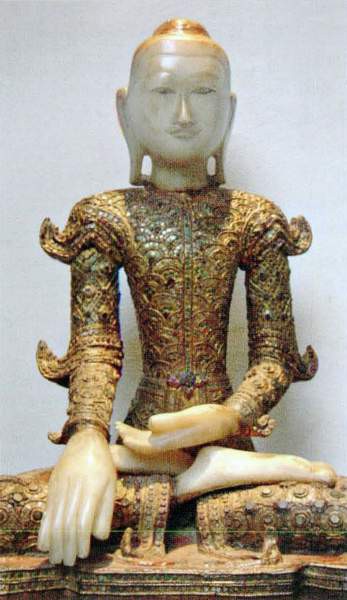
God brings a tremendous relief, One can believe that life is not accidental; there is a certain undercurrent of significance, meaning, destiny, God brings a sense of destiny.
Buddha says there is no God-it simply shows that we do not know why we are here, It shows our helplessness. It shows that there is no meaning available to us. By creating the idea of God we can believe in meaning, and we can live this futile life with the idea that somebody is looking after it.
Just think: you are in an airplane and somebody says, “There is no pilot.” Suddenly there will be a panic, No pilot?! No pilot means you are doomed. Then somebody says, “The pilot is there, but invisible. We may not be able to see the pilot, but he is there; otherwise, how is this beautiful mechanism functioning? Just think of it: everything is going so beautifully, there must be a pilot! Maybe we are not capable of seeing him, maybe we are not yet prayerful enough to see him, maybe our eyes are closed, but the pilot is there. Otherwise, how is it possible? This airplane has taken off, it is flying perfectly well, the engines are humming. Everything is a proof that there is a pilot.”
If somebody proves it, you relax again into your chair. You close your eyes, you start dreaming again, you can fall asleep. The pilot is there; you need not worry.
Buddha says: The pilot exists not; it is a human creation. Humankind has created God in its own image. It is a human invention. God is not a discovery, it is an invention. And God is not the truth, it is the greatest lie there is.
That’s why I say Buddhism is not a religion in the ordinary sense of the term. A Godless religion-can you imagine? When for the first time Western scholars became aware of Buddhism, they were shocked. They could not comprehend that a religion can exist and be without God. They had known only Judaism, Christianity, and Islam. All these three religions are in a way very immature compared with Buddhism.
Buddhism is religion come of age. Buddhism is the religion of a mature mind. Buddhism is not childish at all, and it doesn’t support any childish desires in you. It is merciless. Let me repeat it: There has never been a man more compassionate than Buddha, but his religion is merciless.
In fact, in that mercilessness he is showing his compassion. He will not allow you to cling to any lie. Howsoever consoling, a lie is a lie. Those who have given you the lie are not friends to you, they are enemies-because under the impact of the lie you will live a life full of lies. The truth has to be brought to you, howsoever hard, howsoever shattering, howsoever shocking. Even if you are annihilated by the impact of the truth, it is good.
Buddha says: The truth is that human religions are human inventions. You are in a dark night surrounded by alien forces. You need someone to hang on to, someone to cling to. And everything that you can see is changing-your father will die one day and you will be left alone, your mother will die one day and you will be left alone, and you will be an orphan. From childhood you have been accustomed to having a father to protect you, a mother to love you. Now that childish desire will again assert itself: you will need a father figure. If you cannot find it in the sky, then you will find it in some politician.
Stalin became the father of Soviet Russia; they had dropped the idea of God. Mao became the father of China; they had dropped the idea of God. But people are such that they cannot live without a father figure. People are childish! There are very few rare people who grow to be mature.” – Osho, Buddha; his life and teachings and impact on humanity
The way of the Buddha is known as via negativa -the path of negation. This attitude, this approach has to be understood.
Buddha’s approach is unique. All other religions of the world are positive religions, they have a positive goal -call it God, liberation, salvation, self-realization- but there is a goal to be achieved. And positive effort is needed on the part of the seeker. Unless you make hard effort you will not reach the goal.
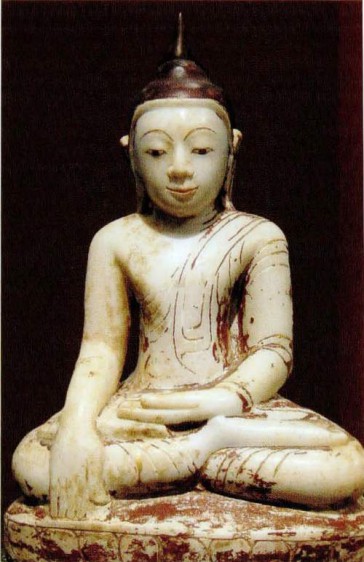
Buddha’s approach is totally different, diametrically opposite. He says you are already that which you want to become, the goal is within you; it is your own nature. You are not to achieve it. It is not in the future, it is not somewhere else. It is you right now, this very moment. But there are a few obstacles and those obstacles have to be removed.
It is not that you have to attain godhood, godhood is your nature-but there are a few obstacles to be removed. Once those obstacles are removed, you are that which you have always been seeking. Even when you were not aware of who you are, you were that. You cannot be otherwise. Obstacles have to be eliminated, dropped. Nothing else has to be added to you.
The positive religion tries to add something to you: virtue, righteousness, meditation, prayer. The positive religion says you are lacking something; you have to be in search of that which you are lacking. You have to accumulate something.
Buddha’s negative approach says you are not lacking anything. In fact, you are possessing too many things which are not needed. You have to drop something.
It is like this: You go trekking into the Himalayas. The higher you start reaching, the more you will feel the weight of the things you are carrying with you. Your luggage will become more and more heavy. The higher the altitude, the heavier your luggage will become. You will have to drop things. If you want to reach to the highest peak, you will have to drop all.
Once you have dropped all, once you don’t possess anything, once you have become a zero, a nothingness, a nobody, you have reached the peak. Something has to be eliminated, not added to you. Something has to be dropped, not accumulated.
When Buddha attained, somebody asked him, “What have you attained?” He laughed. He said, “I have not attained anything, because whatsoever I have attained was always with me. On the contrary, I have lost many things. I have lost my ego. I have lost my thoughts, my mind. I have lost all that I used to feel I possessed. I have lost my body-I used to think I was the body. I have lost all that.
Now I exist as pure nothingness. This is my achievement.” – Osho, Buddha; his life and teachings and impact on humanity
One day Buddha is passing through a forest. It is a hot summer day and he is feeling very thirsty. He says to Ananda, his caretaker, “Ananda, you go back. Just three, four miles back we passed a small stream of water. You bring a little water-take my begging bowl. I am feeling very thirsty and tired.”
Ananda goes back, but by the time he reaches the stream, a few bullock carts have just passed through the stream and they have made the whole stream muddy. Dead leaves that had settled into the bed have risen up; it is no longer possible to drink this water-it is too dirty. He comes back empty-handed, and he says, “You will have to wait a little. I will go ahead. I have heard that just two, three miles ahead there is a big river. I will bring water from there.”
But Buddha insists. He says, “You go back and bring water from the same stream.”
Ananda could not understand the insistence, but if the master says so, the disciple has to follow. Seeing the absurdity of it that again he will have to walk three, four miles, and he knows that water is not worth drinking-he goes.
Read more
“Gautam Buddha was the first man to use the words “to be in the middle”, and of course nobody has been able to improve upon the meanings that he gave to the word middle.
He called his path the middle path. The first meaning is that if you can avoid both the extremes, the rightist and the leftist – if you can be exactly in the middle of both extremes, you will not be in the middle you will have transcended the whole trinity of extremes, and the middle. If you drop both the extremes, the middle disappears on its own accord. Middle of what…?
Gautam Buddha’s insistence on the middle is not the middle itself; it is, in fact, a subtle way to persuade you for transformation. But to tell you directly to be transformed may make you apprehensive, afraid. To be in the middle seems to be very simple.
Gautam Buddha played with the word out of sheer compassion. His own term for the middle is majjhim nikaya, the middle path. Every extreme has to exclude the other extreme; every extreme has to be in opposition to the other polarity. The negative is against the positive, the minus is against the plus, death is against life. If you take them as extremes, they naturally appear as opposites.
But the man who can stop exactly in the middle immediately transcends all the extremes and the middle together. From the higher standpoint of the transformed being, you can see there is no opposition at all. The extremes are not opposites, not contradictories, but only complementaries.
Read more
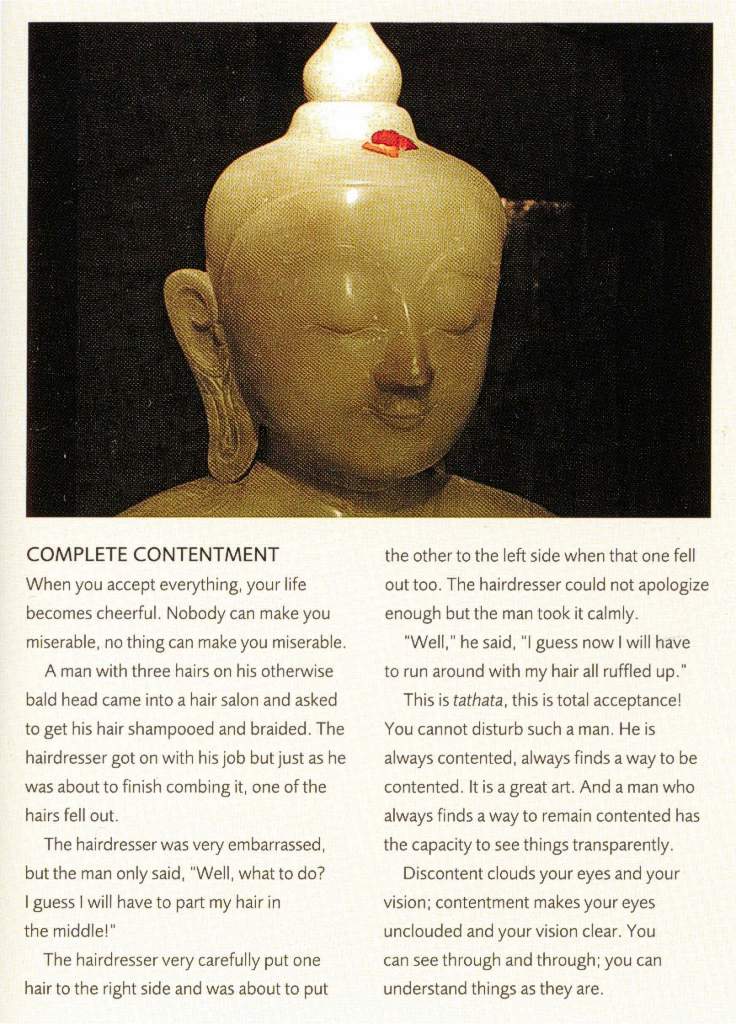
“Before enligtenment the master prepares the people who are going to succeed him, makes them more articulate, makes them better able to transform the wordless into words, the absolutely silent into song, the absolutely unmoving into dance. Only then will he be able to convey something of help to blind humanity.
Buddha divided his enlightened people into two categories. They both have the same height-there is no quality of lower or higher-they both belong to the same cosmic reality, the fundamental nature. One category is called the arhatas-the arhatas are the ones who become enlightened and remain silent and the second category is called bodhisattvas. They also become enlightened, but their work is to convey something, some device, some hint about their experience to people.
Read more
a young child died; the father had died, and the woman was living only for this child. That young child was her whole life and her only hope; otherwise, there was nothing for her to live for. And the child died. She was almost on the verge of going crazy. She wouldn’t allow people to take the child to the crematorium. She was hugging the child in the hope that perhaps he might start breathing again. She was ready to give her life if the child could live.
The people said, “This is not possible, it is against the law of nature.” But she was in such misery, she could not listen to anybody. Then somebody said, “The best way is, let us take this woman to Gautam Buddha who, just by chance, is in the village.”
Read more
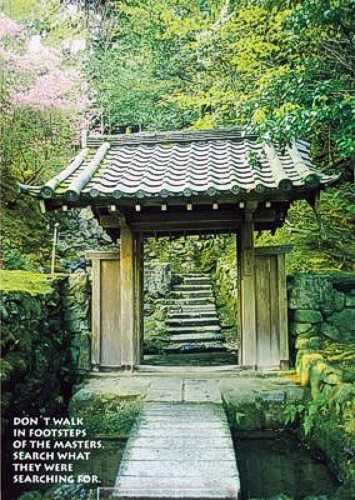
“Argument is possible between two people who don’t know truth. They can argue till eternity because neither knows. Both are ignorant so they can go on playing with words and logic and quotations and scriptures, but because neither knows, there is no possibility of their coming to a conclusion. At the most what can happen is whoever is more clever and cunning and tricky may defeat the other, and the other will become the follower of the more cunning or more sophisticated. But is this any decision about truth?” – Osho, Buddha; his life and teachings and impact on humanity
Read more
“Buddhism does not believe in a God; neither does Jainism believe in a God, but they believe in gods. They are far more democratic in their concepts than Mohammedanism, Judaism or Christianity — these religions are more elitist. One God, one religion, one holy scripture, one prophet — they are very monopolistic. But Buddhism has a totally different approach, far more democratic, far more human. It conceives millions of gods.
Read more
What Human Design
Or should I say –which-…?
Buddha:
“My teaching is a raft whereon men may reach the far shore
The sad fact is that so many mistake the raft for the shore”
As you may know (or not), there are different variations on HDS, up till now I found 4:
Read more